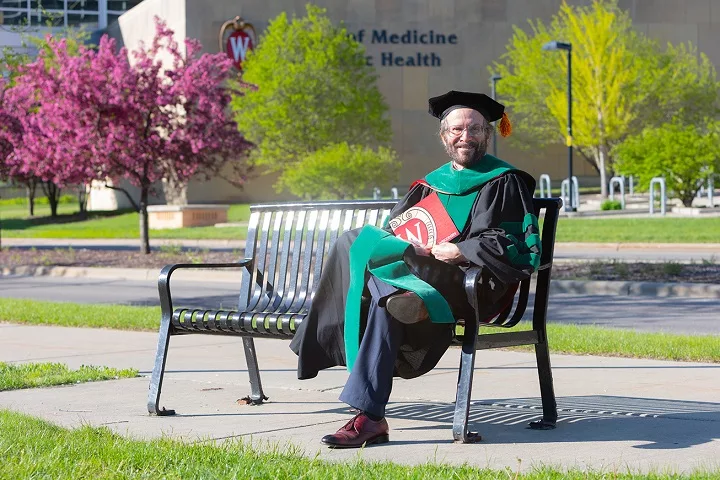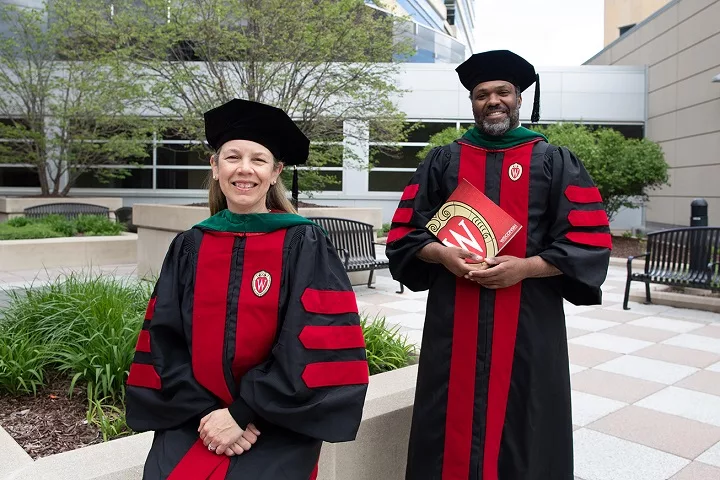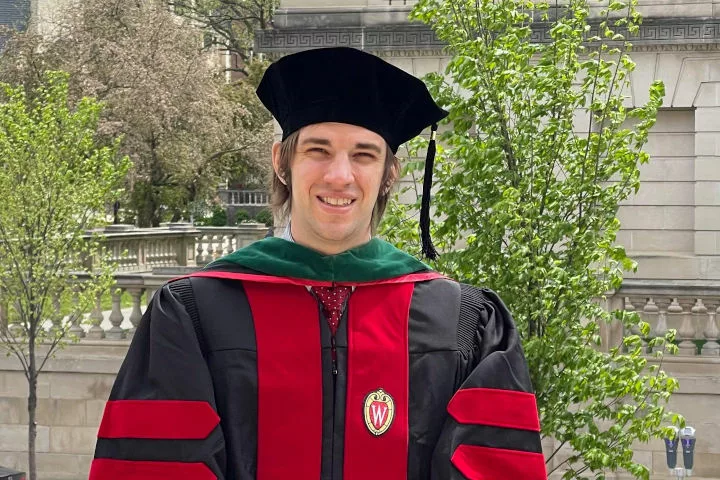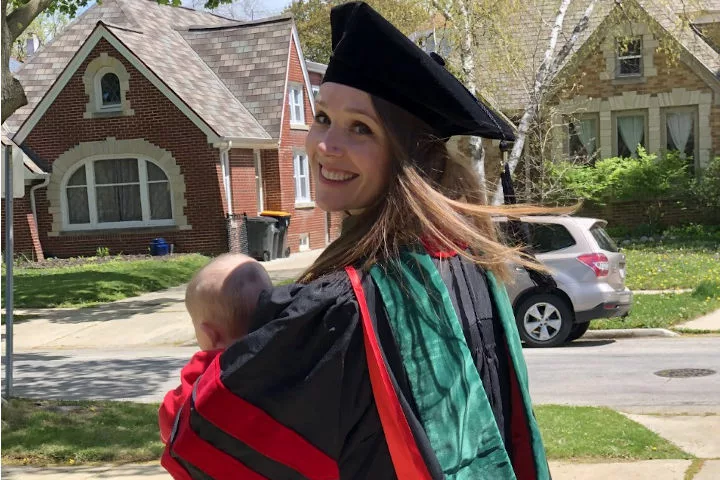Ziegler spoke about starting medical school but taking a leave of absence after his mother was diagnosed with cancer. His training took on new levels of meaning after she passed away and he returned to medical school.
During one semester, he spent Wednesdays in an elective called “The Healer’s Art” that involved discussions around identity, grief, loss, mystery, and awe, while Thursday mornings were spent in an anatomy lab learning from cadavers, human bodies selflessly donated for medical education. The connections between the two were clear to him.
“Where will you find meaning?” he asked his classmates. “Perhaps in the joy of examining a newborn, or the sanctity of an end-of-life conversation, or in any of the moments in between, ranging from routine care to medical marvels. In the fight against injustice, inequality, and inequity, or in doing the research that brings about tomorrow’s prevention, treatments, and cures. Whatever that thing is, knowing you, I know it will be spectacular.”
During medical school, Ziegler helped lead the school’s chapter of Doctors Ought to Care, a group that teaches children about healthy choices, and was elected by his peers for induction into the Gold Humanism Honor Society. He will be pursuing a residency in neurology at the University of Minnesota.
“For all of us wearing caps and gowns today, we would simply not be here without the love and support of our friends and family, who have encouraged us, believed in us, and helped us overcome obstacles both large and small,” he said. “I hope that amidst the celebrations today, you will share your gratitude with the special people in your life.”
Graduate Vivian Gama, MD, will conduct her residency in internal medicine at Massachusetts General Hospital. Her family immigrated from Brazil for her father’s job when she was a child. They lived in Ohio and Florida before settling in Cedarburg, Wisconsin, when she began high school.
Gama described how her culture, full of close personal ties and relationships, has helped her foster physician-patient relationships in a way that feels natural. Coming to the United States and not knowing the language, she says, taught her about reading a room and observing body language, which are keys to being a good physician.
“The fact that we have a school of medicine and public health that has public health issues like the social determinants of health embedded in the curriculum really interested me,” she says. “It adds another dimension of learning and understanding so we can treat patients as a whole. It was something that was very intentional even from day one.”
Many MD students received specialized training
The 174 graduating MD students have followed many paths during their degrees. Nine of them studied for eight or more years in the Medical Scientist Training Program to earn both an MD and PhD. Seventeen are graduating with dual MD and MPH degrees.
Medical students can also follow two Paths of Distinction by completing certain requirements, such as additional coursework and a capstone project. The 2021 MD class included 26 graduates with a Path of Distinction in Research and 21 with a Path of Distinction in Public Health.
The school’s Wisconsin Academy for Rural Medicine (WARM) trained 26 students committed to improving rural health, while the Training in Urban Medicine and Public Health (TRIUMPH) program equipped 18 graduates to focus on patient care and community engagement in urban areas.
Graduate Laura Miller, MD, participated in TRIUMPH. Prior to medical school, her experiences in a women’s health clinic, the Peace Corp, and Planned Parenthood instilled a passion for studying the social determinants of health and eliminating health disparities.




